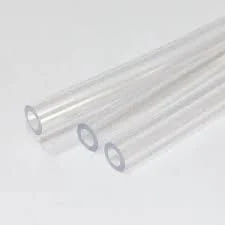Nov . 19, 2024 06:45 Back to list
High-Density Polyethylene Black Pipes for Durable Water and Gas Transportation Solutions
Understanding HDPE Black Pipe Benefits and Applications
High-density polyethylene (HDPE) black pipe is a versatile and resilient material widely used across various industries for fluid and gas transport. Its unique properties offer numerous advantages that make it a preferred choice for many applications. This article explores the benefits and various uses of HDPE black pipe, helping you to understand why it has gained popularity in recent years.
One of the most significant advantages of HDPE black pipe is its durability. Unlike traditional materials such as steel or PVC, HDPE is resistant to corrosion, impact, and many chemicals. This resilience ensures a longer lifespan, reducing the need for frequent replacements and maintenance efforts. Additionally, it remains stable under a wide range of temperatures, making it suitable for both hot and cold applications.
Understanding HDPE Black Pipe Benefits and Applications
The lightweight nature of HDPE black pipe also contributes to its appeal. Compared to traditional materials, it is significantly lighter, which not only makes transportation easier but also simplifies the installation process. Workers can handle the pipes without heavy machinery, leading to reduced labor costs and increased efficiency. This aspect is particularly beneficial in remote areas where access to heavy equipment may be limited.
hdpe black pipe

In addition to these physical properties, HDPE black pipe is highly resistant to UV rays and other environmental factors. This quality makes it an ideal choice for outdoor applications, such as irrigation systems and water distribution networks. The pipe's ability to withstand environmental stressors ensures that it maintains its performance over time, regardless of external conditions.
HDPE black pipe is widely used in various sectors, including agriculture, construction, and municipal applications. In agriculture, it plays a crucial role in irrigation systems, allowing for efficient water transport to crops. In construction, it can be utilized for plumbing systems, drainage solutions, and even as part of fire protection systems. Municipal applications include the transportation of drinking water and wastewater management, where reliability is essential.
The manufacturing process of HDPE black pipes has also evolved, with advancements leading to more sustainable practices. Many manufacturers now incorporate recycled materials into their pipes, contributing to a circular economy. This sustainable aspect appeals to businesses looking to reduce their environmental footprint while still obtaining high-quality materials.
In conclusion, HDPE black pipe stands out as an effective solution for numerous applications due to its durability, flexibility, and lightweight characteristics. Its resistance to corrosion and UV rays makes it a reliable choice for both indoor and outdoor uses. As industries continue to seek sustainable solutions, HDPE black pipe's relevance and importance are likely to grow in the coming years, making it a staple in infrastructure development. Whether for irrigation, construction, or municipal projects, HDPE black pipe offers unmatched performance and reliability.
-
High-Quality PPR Pipes and Fittings Durable ERA PPR & PVC PPR Solutions
NewsJul.08,2025
-
Black HDPE Cutting Board - Durable, Non-Porous & Food Safe HDPE Plastic Cutting Board
NewsJul.08,2025
-
High-Quality CPVC Panel Durable HDPE & PVC Panels Supplier
NewsJul.08,2025
-
Double PE Welding Rod Supplier - High Strength, Durable & Versatile Welding Solutions
NewsJul.07,2025
-
High-Quality PVC-O Pipe Supplier Durable 75mm PVC Pipe & Connections Leading PVC Pipe Company
NewsJul.07,2025
-
HDPE Drainage Pipe Supplier – Durable & Corrosion-Resistant Solutions
NewsJul.06,2025

